Additional Information on ADCT
Why was ADCT developed?
Atopic dermatitis is a chronic disease, driven in part by type-2 inflammation, with both physical and psychological symptoms – lack of long-term atopic dermatitis control is associated with a substantial multidimensional patient burden.1-4
To achieve full control of atopic dermatitis, several different domains must be addressed. There are currently validated tools that can assess each domain individually, but it might not always be feasible to administer multiple tools during one single appointment.
ADCT is designed as a single, brief and easily scored tool to comprehensively evaluate patient-perceived disease control in atopic dermatitis.5,6
ADCT can be self-administered by patients and used in routine consultations. ADCT can help engage patients to comprehensively assess multiple aspects of their disease and prompt enhanced conversations about optimal management of atopic dermatitis.
ADCT: A comprehensive and reliable assessment of atopic dermatitis (AD) control

Quick to complete

Easy to interpret

Comprehensive assessment of AD control
ADCT can be used in routine consultations

Can be self-administered by patients

Enhanced conversations about optimal AD control
Footnotes
- Suárez-Fariñas M, et al. J Allergy Clin Immunol. 2011;127:954-964.
- Simon D, et al. Int Arch Allergy Immunol. 2019;178:207-218.
- Hay RJ, et al. J Invest Dermatol. 2014;134:1527-1534.
- Bridgman AC, et al. Ann Allergy Asthma Immunol. 2018;120:603-606.
- Pariser DM, et al. Curr Med Res Opin. 2020;36(3):367-376.
- Simpson E, et al. BMC Dermatol. 2019;19(1):15.
adct is endorsed by home1
ADCT as a core outcome measure for LONG-TERM atopic dermatitis control
Two separate studies confirmed that Atopic Dermatitis Control Tool (ADCT) is a valid and reliable tool for assessing patient-perceived atopic dermatitis control with the ability to detect clinically meaningful change of disease control in a person over time.2,3 ADCT has been endorsed by the Harmonising Outcome Measures for Eczema (HOME) initiative as one of the core instruments for assessing long-term control in atopic dermatitis.1
HOME is a global initiative of healthcare professionals, patients, carers, regulatory bodies, journal editors and the pharmaceutical industry to develop a consensus-based core outcome set for clinical trials. The core outcome set of parameters that are recommended by HOME to be measured in all clinical trials comprises:
-
Clinician-reported signs of atopic dermatitis
Recommended tool: EASI -
Patient-reported symptoms
Recommended tools: POEM and NRS 11 (for peak itch over past 24h) -
Quality of Life
Recommended tools: DLQI (adults), CDLQI (children), IDQoL (infants) -
Long-term control of atopic dermatitis
Recommended tools: Recap of atopic eczema (RECAP) and Atopic Dermatitis Control Tool (ADCT)
Footnotes
CDLQI, Children's Dermatology Life Quality Index; DLQI, Dermatology Life Quality Index; EASI, Eczema Area and Severity Index; IDQoL, Infants' Dermatitis Quality of Life Index; NRS, Numerical Rating Scale; POEM, Patient-Oriented Eczema Measure.
- Harmonising Outcome Measures for Eczema (HOME). Long-term Control. https://www.homeforeczema.org/research/long-term-control.aspx. Accessed 8 January 2025.
- Pariser DM, et al. Curr Med Res Opin. 2020;36(3):367-376
- Simpson E, et al. BMC Dermatol. 2019;19(1):15.

